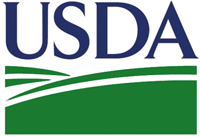 Thirty students were selected to attend USDA’s 2014 Agricultural Outlook Forum, titled “The Changing Face of Agriculture,” to be held Feb. 20- 21, 2014, at the Crystal Gateway Marriott Hotel in Arlington, Va. Twenty university juniors and seniors were chosen on the basis of their essays on “Agriculture as a Career,” and 10 graduate students were selected for their response to “The Greatest Challenge Facing Agriculture over the Next Five Years.”
Thirty students were selected to attend USDA’s 2014 Agricultural Outlook Forum, titled “The Changing Face of Agriculture,” to be held Feb. 20- 21, 2014, at the Crystal Gateway Marriott Hotel in Arlington, Va. Twenty university juniors and seniors were chosen on the basis of their essays on “Agriculture as a Career,” and 10 graduate students were selected for their response to “The Greatest Challenge Facing Agriculture over the Next Five Years.”
“The future of agriculture and rural America depends on the upcoming generation of leaders in farming, ranching and conservation, and the students selected to attend the Agricultural Outlook Forum are among the best young leaders our country has to offer,” said Vilsack. “Participating in the Agricultural Outlook Forum will expose these students to a variety of perspectives on this country’s most pressing agricultural challenges and lay the groundwork for bright futures in food, fiber and forestry.”
USDA’s Agricultural Outlook Forum Student Diversity Program is designed to introduce students to contemporary agribusiness, future trends, scientific research, and agricultural policy in today’s real world environment. The students are from land-grant, Hispanic-serving, and non land-grant agricultural and renewable resources universities. Since the program’s start in 2007, annual sponsorship has been provided by CHS, Inc. and Farm Credit. USDA’s Economic Research Service, Agricultural Research Service, and Natural Resources Conservation Service also provide support. The University of Maryland Eastern Shore partners with USDA to make the program possible. Several of the 2014 winning essays are found here: www.usda.gov/oce/forum/diversity/diversity_program.htm.
Click here to see list of winners: Read More












